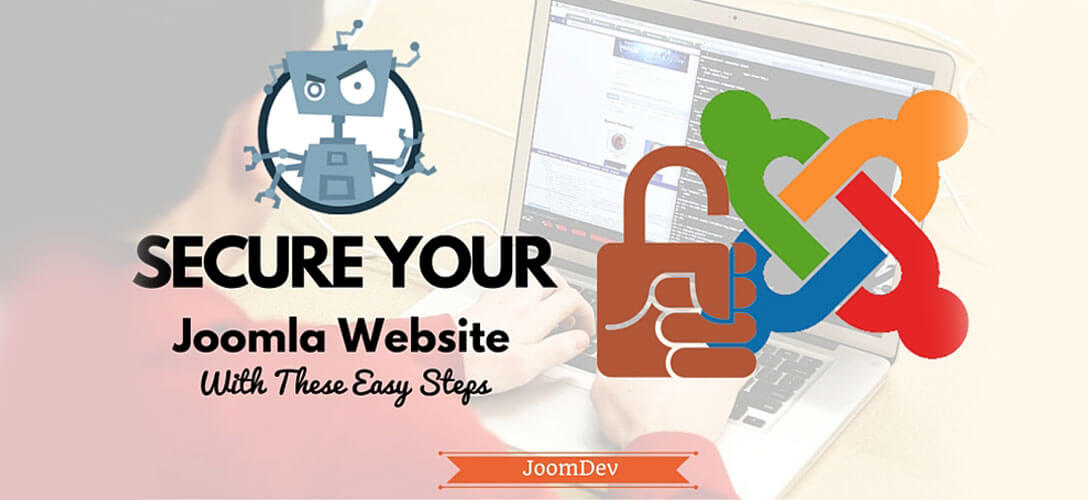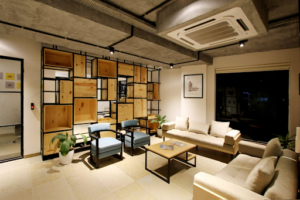Being one of the more popular CMS platforms, maintaining Joomla security can be a hard task, especially as it is the target of various attacks in different complexities. The real issue is that no matter the effort or 24×7 surveillance, a single vulnerability or loophole can compromise your entire Joomla security.
Therefore, an important topic to be discussed today is the steps that can be taken to secure your Joomla site and ensure the maximum levels of protection available.
- Regular back-ups
This is the foundation of your Joomla security plan – maintaining regular back-ups helps you gain a hold of your latest content and database files in case your site is hacked into. Ensure there are regular back-ups placed in your back-up archive in a secure offsite location.
In this context, make sure to use a reputed hosting company that provides the option for periodic and comprehensive back-ups; you can also utilize extensions for the back-up process (like Easy Joomla Backup), which does the work for you and schedules periodic back-ups.
- Protecting the Joomla administrator URL
Restricting access to your administrator area can help a lot in establishing Joomla security levels. There are two methods that you can utilize for this purpose – replace the URL of the login page, or password protects your admin page.
For changing the login URL, you can use readily available extensions for the purpose like Astra Joomla Firewall & security suite, etc. Password protection of the admin page can be done by locking it – this is possible from the main cPanel page, which provides the option of password protection. This means that every time you access the admin page, you will need to enter the password for a secure entry, strengthening Joomla security.
There is also an option available to restrict the access to your admin page by using their IP address – from ‘.htaccess’ file, change it with the specified IP address so that these individuals are specifically allowed to access the administrator page.
- Strong login credentials
If your login details are weak, your Joomla platform is waiting to be prey to the next brute force attack. This means no using ‘admin’, ‘admin123’, or ‘administrator’ as usernames and similarly easy passwords. Hackers can easily use automated software to guess these standard passwords and force their way in, thus compromising Joomla security.
For your administrative account ID, you can use your email id; maintain your password to the desired length and the right number of complex characters (numbers, upper and lower case characters, special characters, etc).
- Always update to the latest versions
One of the most important tips for Joomla security is making sure to update your Joomla, its extensions, and plug-ins to the latest versions available. This is because updated versions usually contain security patches, bug fixes, and other important features that leave lesser backdoors and vulnerabilities for exploitation by hackers.
For updates to the latest version, you should go to the administrator area, under which there is an ‘updates’ option – also, focus on the extensions and plug-ins and update them to their latest version as well.
- Use Joomla security extensions
Your Joomla protection can also be implemented by other security extensions, which provide protection against most hacker attacks and closes up potential security vulnerabilities on the site. While there are a lot of choices, the best security extension should be one that combines the best price, high quality, multiple features that add to the security of the platform, and other reviews – like Astra security.
It is always recommended that you use professional and reputed security extensions since they will do the needful in strengthening Joomla security without requiring your input, easing your burden. Always remember to configure the set-up of these extensions properly, unless your platform requires some custom specifications.
- Proper file protection
Managing permissions is an important feature of Joomla security – no user should be given full permission of access, i.e., 777. For folders, one should use 755, 644 for files, and 444 for the ‘confguration.php’ file.
- Install SSL/HTTPS
It is a well-known fact that SSL certification provides an extra layer to your Joomla security measures. Without this barrier, whenever the user enters the site with their login credentials, this information travels from the browser to the site without any encryption or decryption.
- Delete any unused or unnecessary Joomla extensions
While there’s no problem in trying out new extensions to explore the features they provide, it is recommended to know the exact functioning and the source when downloading such extensions, since they can be the source of vulnerabilities and loopholes that compromises your Joomla security in the future. Hackers can use SQL injections or cross-site scripting attacks to forcefully enter the site, so the removal of unnecessary extensions is important.
There are many more methods to increase Joomla security levels such as two-factor authentication, updating PHP versions, etc. After some basic protection measures, Joomla owners are free to customize to their needs.





Be First to Comment